"The number of appeals will show the real level of persecution in the country." We recall what decisions the UN Working Group has taken since 2020
On July 18, the UN Working Group on Arbitrary Detention published a document where it recognized the detention of the founder of the Viasna Human Rights Center, Nobel Peace Prize laureate Ales Bialiatski as a violation of international law and demanded his immediate and unconditional release, as well as granting him the right to compensation and other reparations in accordance with international law. Since 2020, the UN Working Group has adopted seven decisions on the cases of Belarusian civil society actors: bloggers, lawyers, and human rights defenders detained in politically motivated cases. Together with Sviatlana Halauniova, a Viasna lawyer, we recall the cases of political prisoners which the UN Working Group on Arbitrary Detention has taken decisions on since 2020.
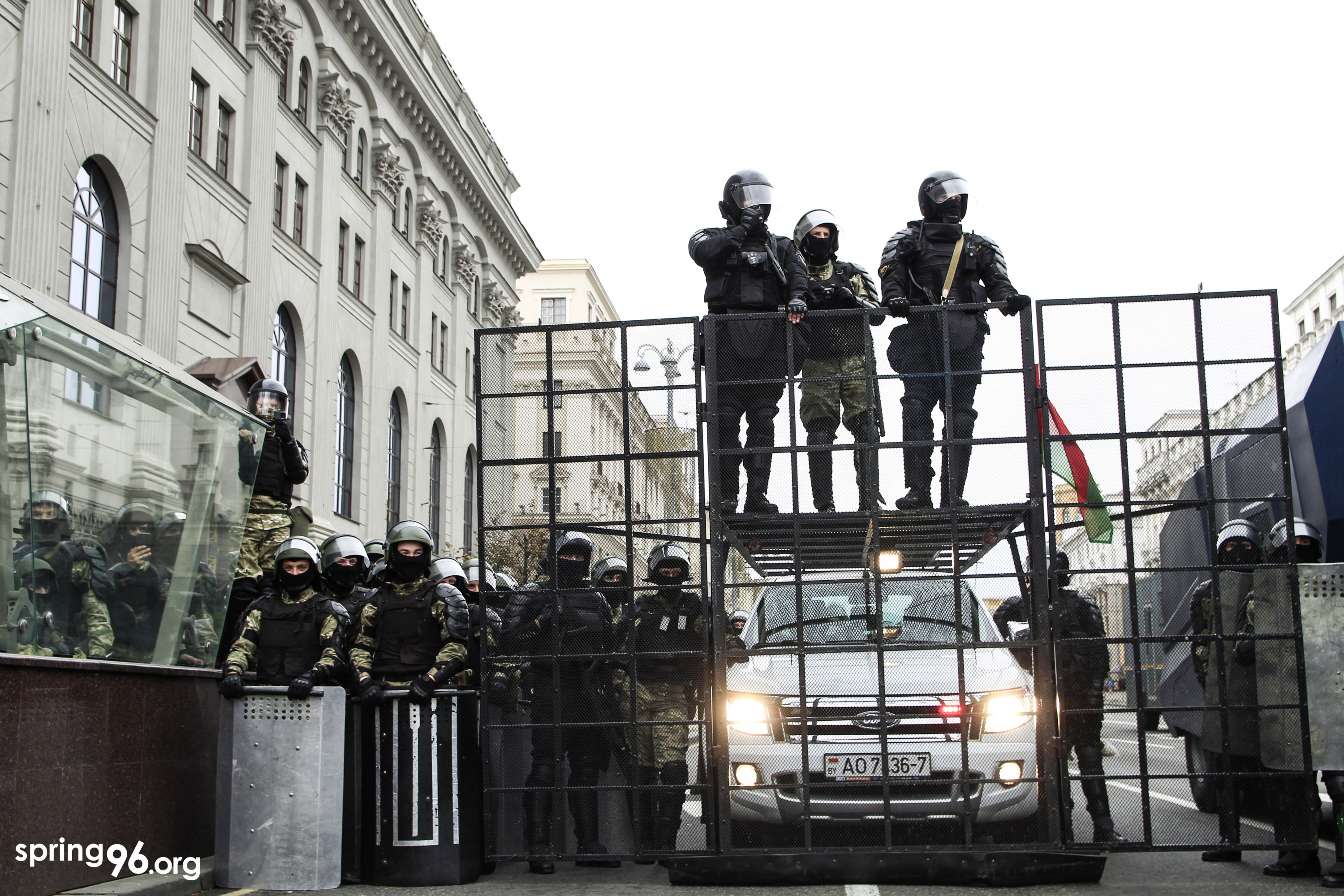
- Unity March, Minsk, September 6, 2020. Photo: spring96.org
"The Working Group remains the only way to protect at the international level the rights and beliefs of Belarusians unjustly deprived of their freedom"
"In four years, the Working Group on Arbitrary Detention has made very few decisions on Belarus: only seven. Until 2022, the main body of international appeal for Belarusians was the Human Rights Committee, whose competence is to handle all complaints about violations of civil and political rights. And the Working Group on Arbitrary Detention handles only the cases of imprisoned people, and only those deemed worthy of its attention. But now, apart from the Committee on the Elimination of Discrimination against Women, which is clearly not suitable for everyone, the Working Group remains the only way to protect at the international level the rights and beliefs of people unjustly deprived of their liberty.
The positive decision of the Working Group is a confirmation at the international level that a person was deprived of their liberty illegally and unreasonably. Such a decision has great weight and can, for example, become a weighty argument in obtaining international protection or some other support from democratic countries.
Therefore, the Working Group should certainly be contacted in order to enable the imprisoned person to receive an independent assessment of the circumstances of their imprisonment as an alternative to the one given by the authoritarian authorities. The number of appeals will help to show the real situation with persecution and repression in the country, as it gets worse over time," says lawyer Sviatlana Halauniova.
Blogger Siarhei Tsikhanouski and arbitrary detention (Opinion No. 23/2021)

Siarhei Tsikhanouski, an entrepreneur and well-known blogger from Homieĺ, decided to become a candidate for president in 2020. However, due to his arrest, he was unable to personally submit documents and was not registered as a candidate. Then his wife Sviatlana Tsikhanouskaya submitted the registration documents, and Siarhei became her confidant. However, at the stage of collecting signatures, he faced a provocation at a campaigning event and was detained allegedly because of violence against a law enforcement officer.
On October 14, 2021, the UN Working Group on Arbitrary Detention adopted a decision.
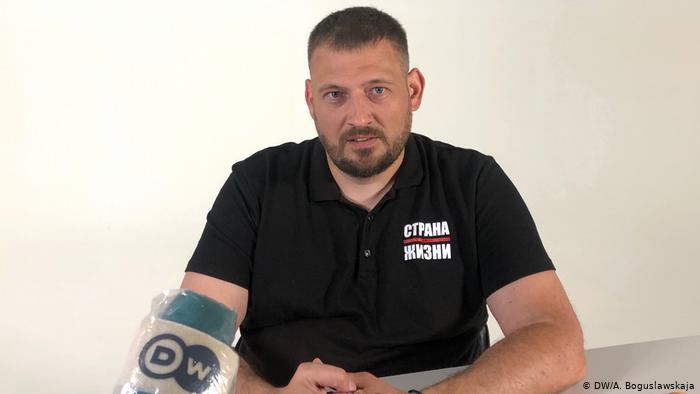
Release Mr. Tsikhanouski immediately: UN Working Group on Arbitrary Detention rules in blogger's case
Paragraphs 71 and 77 note that detaining Siarhei Tsikhanouski at the crime scene on one charge and then pressing completely different charges without any explanation has no legal basis and is arbitrary.
Paragraph 73 states that 48 hours is usually sufficient for the immediate delivery of a detainee to a judge; any delay of more than 48 hours must be absolutely exceptional and justified in given circumstances.
The Working Group recalls in Paragraph 92 that the right of the accused to have sufficient time and opportunity to prepare their defense and to communicate with their own chosen counsel (Article 14 (3)(b) of the ICCPR) requires that a lawyer can have a one-on-one meeting with clients and communicate with them in conditions that fully respect the confidentiality of their interaction. Filming the meeting of the accused with the lawyer in the pre-trial detention center is a violation of the confidentiality of communication with the lawyer.
Blogger Raman Pratasevich and violation of the presumption of innocence (Opinion No. 50/2021)
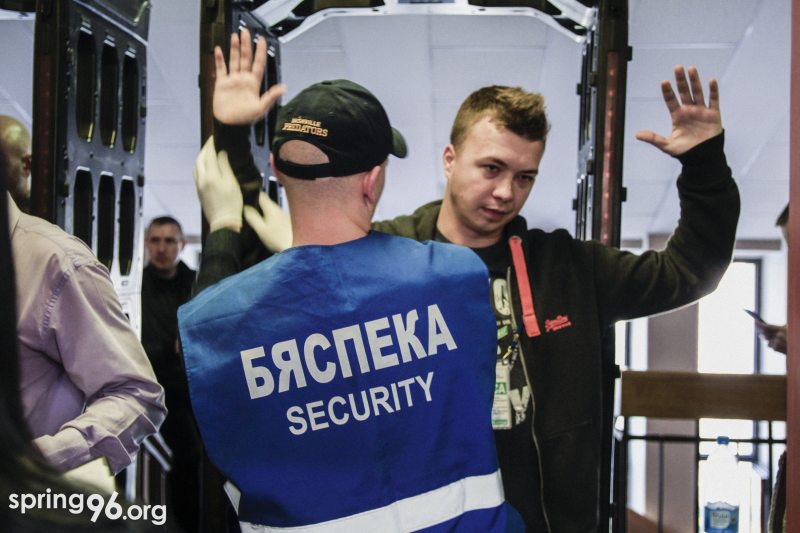
- Raman Pratasevich in 2019. Photo: spring96.org
Raman Pratasevich is the creator and editor of the NEXTA media project which announced the time and place of the protest actions during the mass protests of 2020 and coordinated the further actions of protesters. Raman was detained due to a false report about a bombing attempt on a Rynair plane which was flying over the territory of Belarus. The blogger was sentenced to eight years of imprisonment. A few months later, at the time of the Working Group's consideration of the report on his detention, he was pardoned, probably in exchange for cooperation with the investigation and work for state propaganda resources.
The UN decision was made on December 9, 2021.
What is important in the decision:
(Paragraph 70) For the first four days, the detainee was not given the opportunity to meet with his lawyer. This is a violation of the right to defense.
(Paragraph 89) The obligation of non-disclosure on the lawyer may have a serious adverse effect on the lawyer's ability to properly represent the client.
(Paragraphs 90-91) Publication in the media of confessions of guilt by the suspect, without the presence of his lawyer and before the trial took place, violates the presumption of innocence.
Lawyer Maksim Znak and violation of the right to a fair trial (Opinion No. 24/2022)
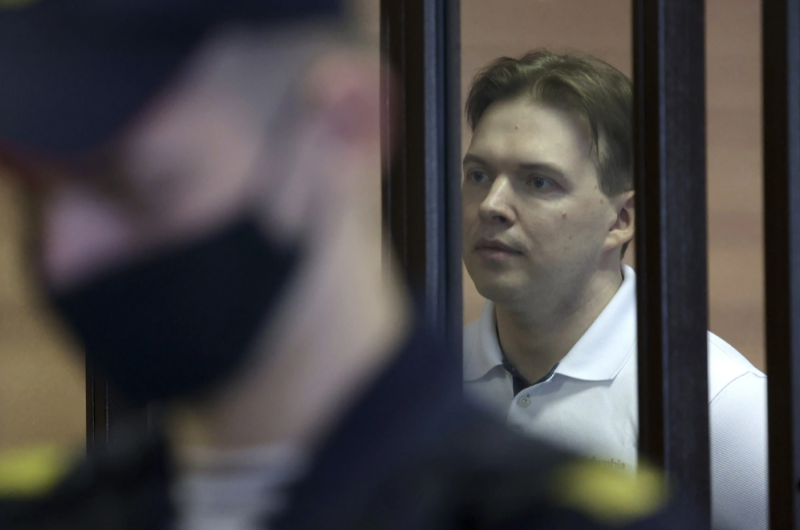
Maksim Znak is a Belarusian lawyer and counsel. In the 2020 elections, he was a lawyer for Viktar Babaryka's team, and then a representative of presidential candidate Sviatlana Tsikhanouskaya. On September 9, 2020, he was detained on charges of "calling for actions aimed at harming the national security of the Republic of Belarus." Later, he was accused of "conspiracy to seize power and create an extremist formation." Similar charges were brought against other representatives of Sviatlana Tsikhanouskaya's team. The court sentenced Maksim Znak to 10 years of imprisonment.
The UN Working Group adopted a decision on May 25, 2022.
What is important in the decision:
(Paragraphs 78-79) Everyone has the right to have an arrest warrant issued in the event of their detention, as a guarantee that the detention will not be arbitrary. In addition, any form of detention and keeping of a person in custody must be ordered by a competent, impartial and independent judicial authority. In the case of Maksim Znak, the reasons for the detention were communicated to him verbally, and a formal decision was presented later. The decision to detain him was made by the prosecutor, not by the court.
(Paragraphs 100-101) The right to a fair trial was violated because the trial was conducted behind closed doors. Judges may exclude the public from the courtroom for reasons of morality, public order or national security, as well as to protect the interests of the private life of the parties or, if necessary, to comply with justice. However, but for such exceptional circumstances, the hearings should be open to the general public, including representatives of the media, and should not be limited to a certain category of persons.
Blogger Ihar Losik and interference in journalistic activity (Opinion No. 45/2023)
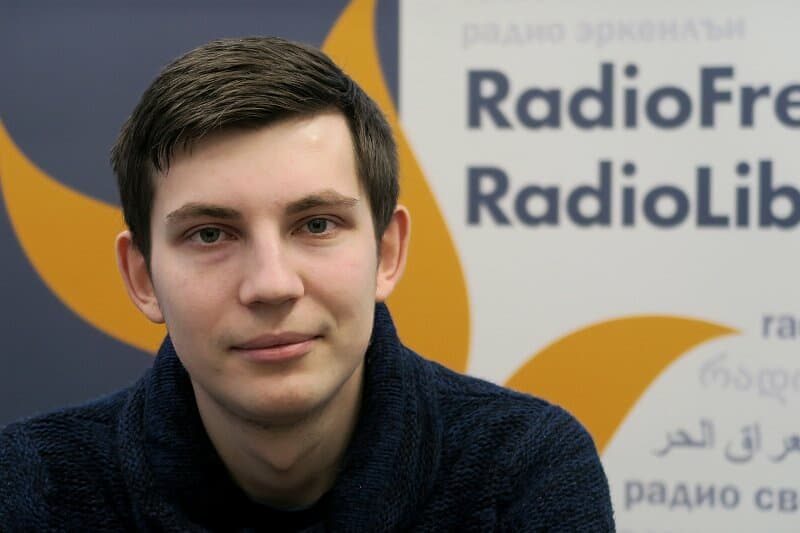
Ihar Losik is a blogger and journalist. Ihar was detained on June 25, 2020, was kept in custody for almost a year, and was sentenced to 15 years of imprisonment on charges of organizing riots for running the Telegram channel Belarus Halaunoha Mozhu, where, among other things, he covered the 2020 protests and the activities of Siarhei Tsikhanouski.
The Working Group adopted a decision on the case of Ihar Losik on September 26, 2023.
What is important in the decision:
(Paragraph 51) Pre-trial detention of the accused should not be a general rule, but should be applied only in exceptional cases and be justified. Prolonged pre-trial detention (in the case of Ihar Losik, lasting for about a year) without any justification for not using alternative preventive measures is arbitrary in itself.
(Paragraphs 57 and 61) Detention for carrying out exclusively journalistic activities that did not incite violence is an unjustified interference with these rights.
(Paragraph 67) The independence of the judiciary is systematically restricted in Belarus. In politically sensitive cases, judges are expected to comply with the requests of the Prosecutor General, whose role is to implement the repressive policy of the executive branch to severely punish dissent.
Former policeman Piotr Butsko and violation of the right to peaceful assembly (Opinion No. 52/2023)
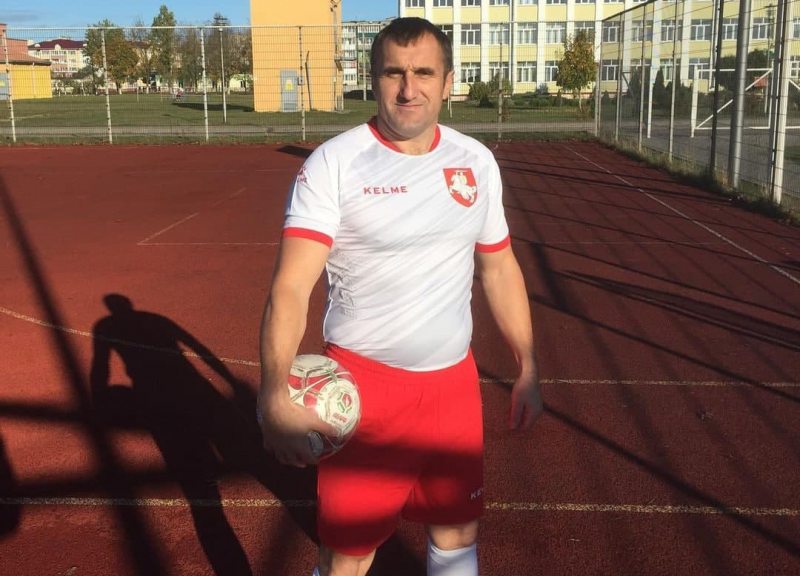
The UN Working Group made a decision on the case of Piotr on September 29, 2023. Piotr Butsko participated in the post-election protests in 2020; as a consequence, he was repeatedly detained and brought to administrative responsibility. He was later sentenced to six years of imprisonment for an incident unrelated to his protest activities.
What is important in the decision:
With regard to the prosecution for participating in protests, the Working Group noted a violation of the detainee's right to appear before a judge immediately, as well as a violation of the right to peaceful assembly and freedom of expression.
(Paragraph 72) In addition, an important point in the decision is the observation that the Working Group does not assess the correctness of the application of national legislation and the sufficiency of evidence in the case.
Lawyer Vital Brahinets and the days of detention to initiate a criminal case (Opinion No. 64/2023)
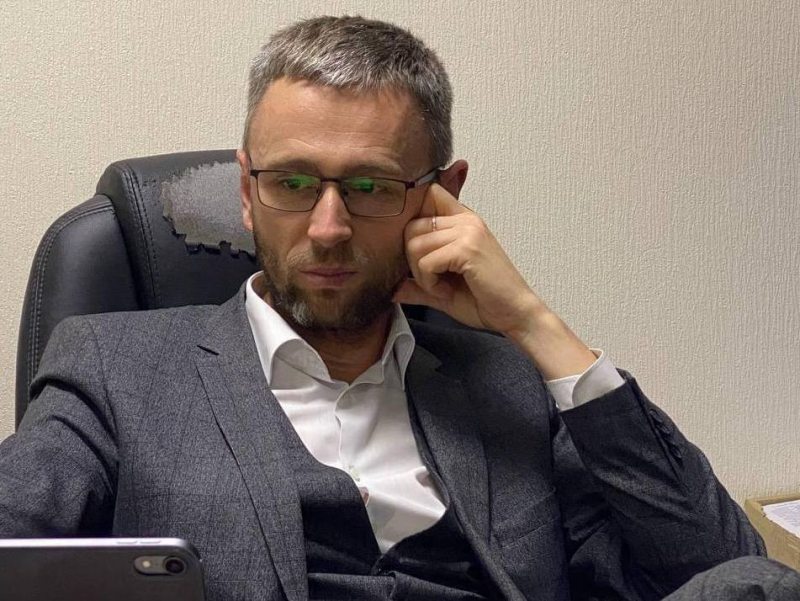
Vital Brahinets is a lawyer who has been deprived of the right to his profession.
The UN Working Group made a decision on Vital's case on December 8, 2023.
What is important in the decision:
(Paragraph 70) Vital was placed under administrative arrest several times in a row for far-fetched reasons, until finally criminal charges were brought. Administrative arrest in order to find grounds for criminal charges deprives the detainee of the guarantee of procedural rights as a suspect and contradicts the principle of the rule of law.
(Paragraph 71) The trial via a video call itself does not constitute a violation of the detainee's right to appear before a judge. However, if such a method of conducting the trial created any significant inconveniences and obstacles for the detainee, then this may be regarded as a violation.
(Paragraph 73) The detention of the accused as a preventive measure should not be a general rule, but, on the contrary, should be applied only in exceptional cases. Detention should last for as short a period as possible.
Human rights defender Ales Bialiatski and not enough time to familiarize oneself with the case materials (Opinion No. 3/2024)
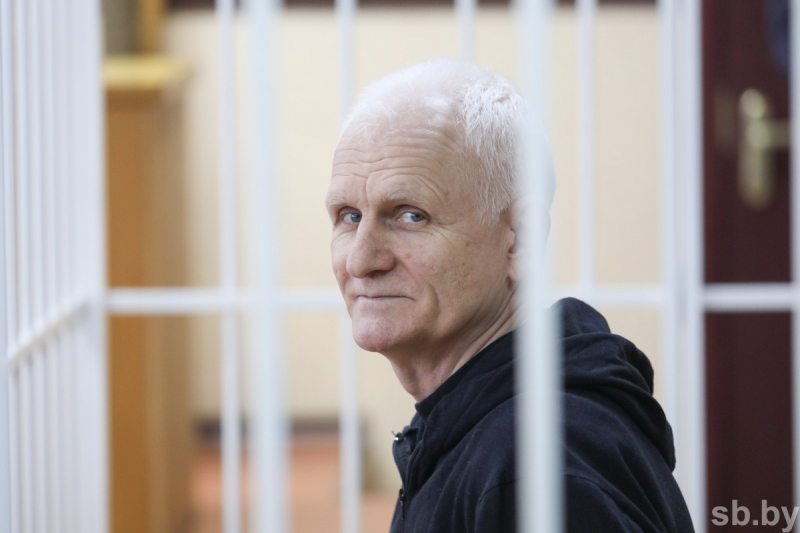
Ales Bialiatski, the founder and head of the Viasna Human Rights Center, has been persecuted by the Belarusian authorities for many years for his human rights activities. Thus, in 2011, he was sentenced to four and a half years of imprisonment on charges of tax evasion: for receiving funding for the organization at his own account, since the organization itself was illegally deprived of registration by the authorities. The Human Rights Committee declared the sentence illegal and called on the Belarusian authorities to release Ales.
In July 2021, Ales was detained as part of the mass detentions of human rights defenders. He and other detained representatives of Viasna were charged, similarly to the 2011 case, with tax evasion. More than a year later, when the deadline for the preliminary investigation of the case was coming to an end, the criminal case for tax evasion was closed and new charges were brought: smuggling and financing protests. The court found Ales guilty and sentenced him to 10 years of imprisonment.
What is important in the decision:
(Paragraphs 85-87) It is not sufficient to justify prolonged pre-trial detention only by the gravity of reasonable charges.
(Paragraph 89) The detainee has the right to be present in person at all hearings held to verify the legality of his detention.
(Paragraphs 93 and 95) Article 342 of the Criminal Code prohibits group participation in a peaceful protest on the sole grounds that such actions may cause inconvenience to the public. Such justification is not sufficient to criminalize participation in peaceful protest. Therefore, deprivation of liberty under Article 342 of the Criminal Code is arbitrary.
(Paragraph 98) The fact that the presiding judge was placed on the sanctions list for "numerous politically motivated decisions against peaceful protesters" indicates the lack of independence and impartiality of the court.
(Paragraph 99) The Working Group, in its justification for the lack of independence and impartiality of the court in Belarus, refers to the report of the UN Special Rapporteur on Belarus (A/HRC/47/49, Paragraph 54), which refers to the dependence of courts on the executive branch and their active participation in severely punishing dissent, as well as preventing lawyers from transferring information about repression.
(Paragraphs 103-104) The accused and his lawyers had only three months to familiarize themselves with the 85,000-page criminal case. The Working Group considers this insufficient time and sees here a violation of the right to protection.
(Paragraph 105) Most of the witnesses whose pre-trial testimony the court relied on did not appear at the trial and the defense was unable to cross-examine them; this is a violation of the equality of the parties.
(Paragraph 110) If detention occurs for the exercise of a person's civil and political rights, such detention is discrimination based on political or other views.

















